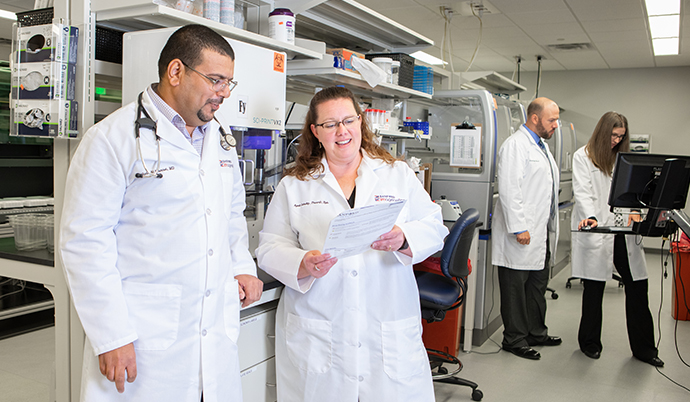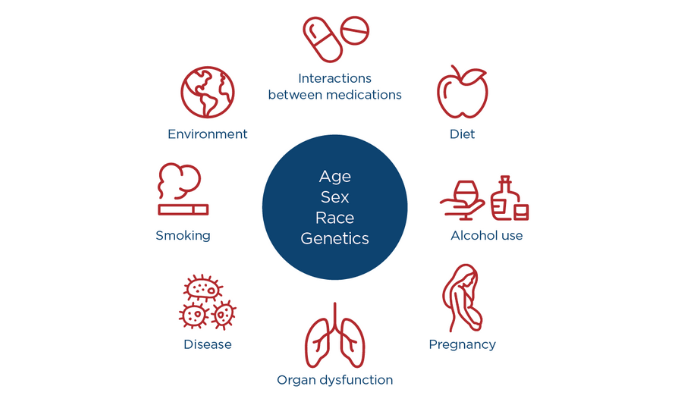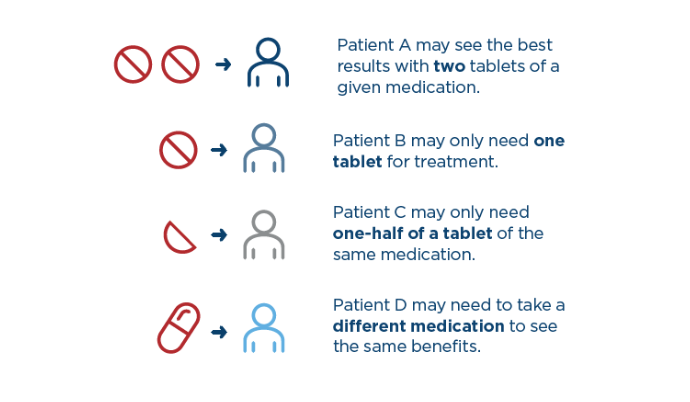What is pharmacogenomics (PGx)?

Everyone responds to medicine differently.
Pharmacogenomics (far ma-ko-jen-om-iks), also called pharmacogenetics, is the study of how people respond differently to medication based on their genetics.
A simple genetic test can tell you which medications may work for you with the fewest side effects. With the power of PGx, your doctor can develop a plan specific for you.
Schedule an appointment
After talking with your doctor about your medications and potential genetic testing, they can refer to the pharmacogenomics team or you can call to make an appointment.
Please call (605) 404-4000 to learn more or make an appointment.
Most appointments will occur between the patient and the provider at the pharmacogenomics clinic.
Depending on the reason for your visit, your provider may:
- Review your personal and family medical history
- Discuss the way your body processes medications
- Look for possible drug-gene interactions
- Guide you on future medication selection and dosing
- Review the benefits and limitations of each test
Learn more about Pharmacogenomics at Sanford Health and what your results mean to you.
Learn more about pharmacogenomics
Frequently Asked Questions
Talk to Your Doctor. Discuss PGx testing with your provider. They can order testing on your behalf. Find a Doctor
Call the PGx Clinic. Patients can schedule an in-person or virtual visit with the PGx cinic where a provider can order the test for you. Call (605) 404-4000 to schedule an appointment.
You’ll provide a blood sample at any Sanford Lab
You’ll receive your results through My Sanford Chart
Your results will be available within 14 days and sent to your ordering provider and the clinical pharmacy team. You can review your results any time by going to the Menu and selecting Genetic Profile at the bottom of the My Record section.
A pharmacist will review our PGx results
A Sanford pharmacist will contact your provider regarding medication recommendations. When you receive your results, please do not stop your medication(s) or make any medical changes before consulting with your provider first.
Limitations:
- This test isn’t comprehensive and doesn’t identify all genetic variations or conditions.
- This test does not provide information for all medications.
- This test offers additional information for your provider to make clinical decisions and is not the only consideration in your treatment.
Please tell your provider if you have any of the following:
- A current leukemia diagnosis
- Had a blood transfusion in the last 30 days
- Had a bone marrow transplant at any time in your life
- Had a liver transfer at any time in your life

Patient with two rare diseases thankful for Sanford
Eyeris Harbor and his family can stay local for their care across several specialties

Family faces multiple diagnoses for genetic condition NF1
A baby’s unique birthmarks lead to genetic testing and specialty care for whole family





